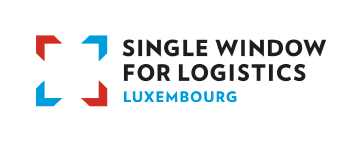Anti-dumping duties and countervailing duties are commercial policy measures. Their goal is to re-establish fair competition between low price products imported from third countries, and products manufactured in the European Union (EU).
Anti-dumping duties
The European Commission can impose anti-dumping duties to protect EU industry against any damages caused by dumping.
Dumping is when a company exports a product into the European Union that is less expensive than the normal value of the product in its own domestic market, or at a price that is lower than the cost price of the product.
Countervailing duties
Countervailing duties, also called anti-subsidy duties, apply to goods that directly or indirectly receive a financial advantage in their country of origin (in particular in the form of a subsidy). The subsidy could occur at the time of manufacturing, production, export, or transport of any product exported to the EU. It must be specific, that is, granted by an authority to one or more specific companies for the production, export, or transport of a product.
Such a subsidy then allows imports within the EU of goods at prices that are clearly lower than normal value.
Opening an anti-dumping or anti-subsidy investigation
The investigation procedure begins by filing a complaint with the European Commission.
The complaint may be initiated:
- by any person or association that constitutes a representative share of the production of the Union affected by imports that are subject to dumping or a subsidy;
- or, at the request of a EU country;
- or, in some cases by the European Commission.
The complaint must contain enough evidence to demonstrate:
- the existence of dumping or of a subsidy
- the existence of injury
- the existence of a causal link between the imports that are subject to dumping a subsidy and the alleged injury
- that the imposition of anti-dumping duties or countervailing duties would not harm the interests of the EU.
The notice of initiation of an anti-dumping or anti-subsidy investigation will be published in the Official Journal of the European Union.
Adoption of anti-dumping duties or countervailing duties
Adoption of provisional duties during the investigation
During the investigation, if a preliminary inquiry determines that dumping has occurred or a subsidy has been given, or whether injury has been suffered by the EU industry, the Commission can decide to adopt provisional measures. This decision occurs after 60 days and within 9 months from the initiation of the proceedings.
Imposition of definitive duties at the conclusion of the investigation
The investigation lasts at most 15 months in the case of dumping and 13 months in the case of a subsidy.
When the investigation ends, the Commission determines whether dumping or a subsidy has occurred.
The rules for imposing an anti-dumping duty or countervailing duty may create, according to the case:
- a single duty that applies to all exporting companies
- so-called individual duties for the producers-exporters that cooperated with the authority in charge of the investigation. For the other companies that do not take part in the investigation, a so-called residual duty, greater than the duty imposed on cooperating companies, will be applied
- exemptions for companies that commit to export the product, targeted by a countervailing or anti-dumping duty, at a price greater than the threshold set by the authority in charge of the investigation.
Retroactive application of duties is not systematic and must be expressly specified.
Anti-dumping and countervailing duties are put in place for a limited period of time: five years for anti-dumping duties and four years for countervailing duties.

